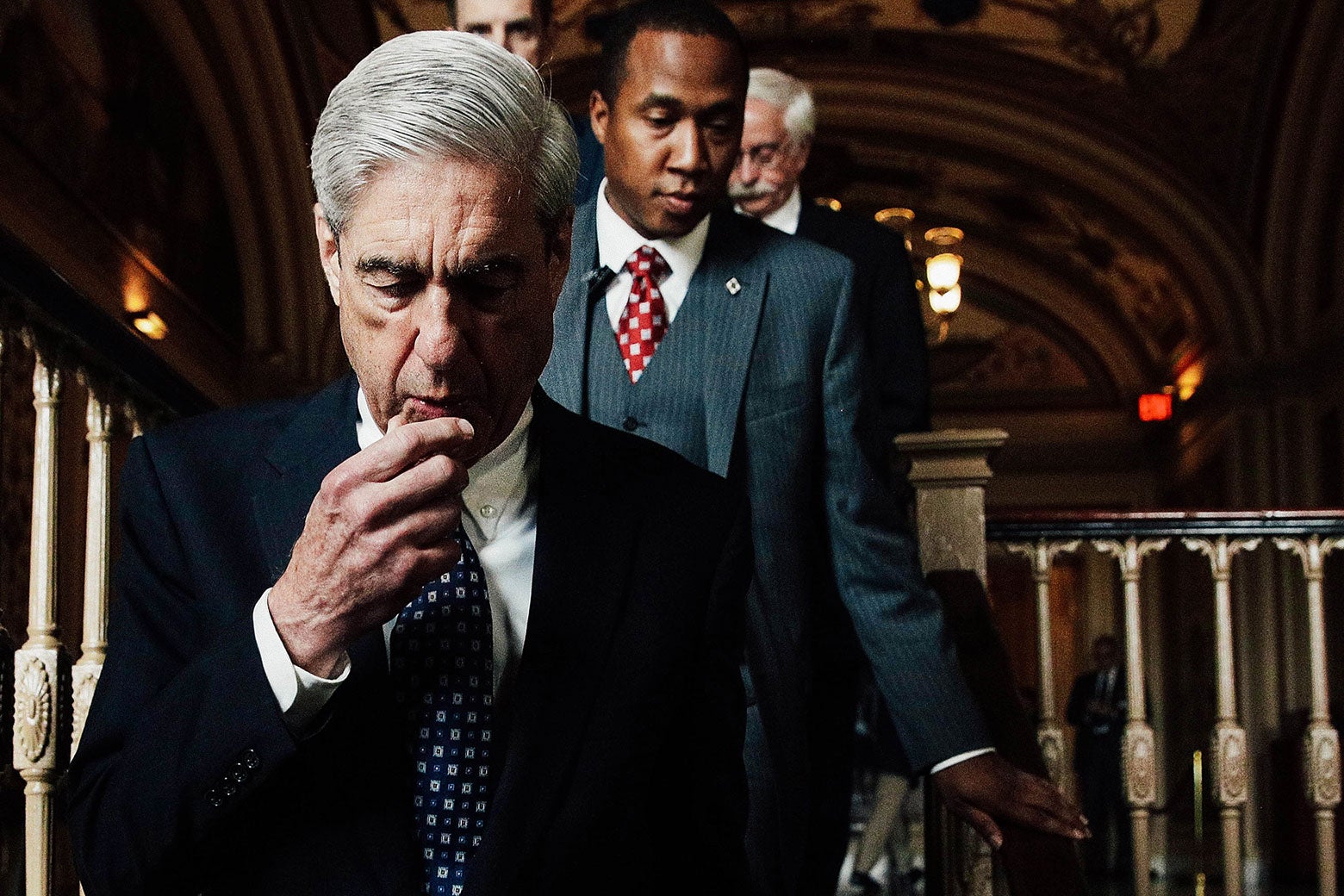Federal prosecutors, it is often said, enjoy enormous power advantages over suspects and defendants. There are, however, areas in which the balance of power runs the opposite way. One is the ability to use the media. Criminal suspects and their lawyers have unfettered access to the press, while professional standards and Department of Justice rules severely restrict prosecutors from talking about what they are doing, especially at the investigative stage.
This asymmetry is even greater when the subject of the investigation is President Donald Trump, whose every tweet and utterance draws instant international coverage, and the prosecutor is Robert Mueller, who operates in a political environment that demands irreproachable conduct from him.
As a result, there are really two Russia investigations. One is visible to the public, fueled by the media, and susceptible to the president’s messaging operation. Trump and his allies have been increasingly disciplined about discrediting this public-facing investigation. See, for example, the attempts to smear Deputy FBI Director Andrew McCabe, whose involvement in the investigation has come under attack by the president and whose retirement was publicized on Monday. See, also, the recent and increasingly forceful attempts of House Republicans to target Deputy Attorney General Rod Rosenstein, who supervises Mueller’s probe. While the president and his allies have engaged in this pressure campaign, they have simultaneously insisted that the president has cooperated fully with the investigation and will continue to do so. In this version of events, Trump would “love to” do an interview with Mueller and “looks forward” to setting the record straight. Indeed, he would gladly testify under oath if given fair conditions.
The actual investigation, though, is opaque to us. The special counsel’s office has been admirably and remarkably leak-free. Mueller and his team speak only through their legal filings and court appearances. And that is as it should be.
Now the president’s lawyers are reported to be “negotiating” with the special counsel over the terms of an interview. One might wonder, from Mueller’s perspective, what there is to negotiate. He is charged with conducting a thorough investigation, and he has subpoena power. Shouldn’t he be able to ask every pertinent question of any relevant witness?
The president, of course, is no ordinary witness. Among other things, he is at serious legal risk in this matter and may effectively be a target of Mueller’s. Department of Justice guidelines, and norms of criminal practice, hold that investigative targets should not be subpoenaed to testify unless doing so is essential to an inquiry.
This rule, together with the president’s extraordinary job responsibilities, gives Trump’s lawyers the ability to force Mueller to deal with their demands. And they are presumably steep: no oath, no recording or transcript, only certain people in the room, unworkable time limits, and—most pivotal in the Russia affair—limitations on what subjects Mueller’s team will raise.
The best outcome for the president might be a drastically cramped “interview” in which nothing important is accomplished but after which he can say, and repeat into November 2020, that he was an open book on Russia, and the investigation exonerated him.
The next best result for him would be no interview at all, with the president and his lawyers saying that the special counsel refused to negotiate reasonably. Citing the “witch hunt,” the president can argue that Mueller demanded unfair access.
The asymmetry in ability to use the media makes this strategy fairly easy and costless for the president and his team.
Mueller is left in a bind. He cannot agree to an interview under conditions that would make it fruitless. Trump’s apparent version of the interview is a “Did you do it?” scenario that exists only on television. But investigative interviews in white-collar cases involve layered and detailed questions to establish intent. Proclaiming innocence is not the point. On the other hand, Mueller cannot maintain the credibility of his investigation if he does not give the president a chance to tell his side of the story to investigators.
The public will not know the truth about any “negotiations” that took place over interview conditions because they will hear only the president’s version of those events. Perhaps Mueller will decide that he has no choice but to deem the president’s testimony essential and issue a subpoena. The president’s lawyers would then contest the subpoena in court, and the courtroom is at least a playing field where Mueller can and would respond. But if Mueller issues a subpoena, it seems certain that the president would claim this extraordinary action proves that Mueller is simply out to get him. What’s clear is that the next steps in the interview episode could weaken Mueller’s precarious hold on the special counsel position further, as the prospect of Trump ever answering a question in the Russia probe continues to fade.
